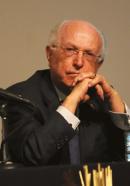- The Spanish language: a clean mirror of words
In times of tweets and states of Facebook, of inbox and emoticons of WhatsApp, you could think that languages are in danger of extinction. The "big country" of the Internet and social networks impose new languages and forms of communication, while generating uncertainty about the integrity of languages.
"I am more concerned that we should have an adequate teaching of the Spanish language. The shortcomings of training at basic levels are more alarming than the new languages that can foster technological development," said Jaime Labastida, director of the Mexican Academy of Language, as part of the inauguration of the Summer School of the Autonomous University of Nuevo León, Mexico.
He added that in every age technical advances have induced different dynamics and instruments; at some point of history it could be thought that telegraphy, with its short phrases and its particular language, could have altered or impoverished the Spanish language, but this did not happen.
"The world today is governed by technology, yes, but at any time in history intelligence must prevail, and also the encouragement for the proper use of languages, reading, writing, publishing, so that we can use Twitter or any other platform, and also write and speak correctly.
In "Sonata y drama por Juana Inés", the inaugural presentation of the event organized by the UANL Secretaría de Extensión y Cultura (Extension and Culture Secretariat,) the director of the third language academy created in America dealt with the literary legacy of Mexican writer and religious Sor Juana Ines de la Cruz, a great figure of the Spanish-American arts of the seventeenth century.
"She never went to a university, but her hunger for knowledge led her to learn about science, astronomy, literature; a woman who did not seek to publish her books, but gave them to Countess Paredes, who published them in Madrid; who renounced the world by making religious vows, but today the world refuses to forget her."






















































